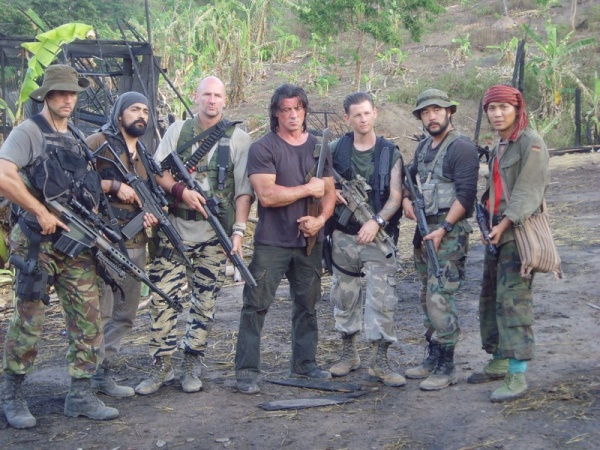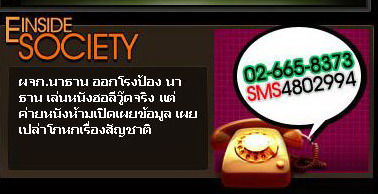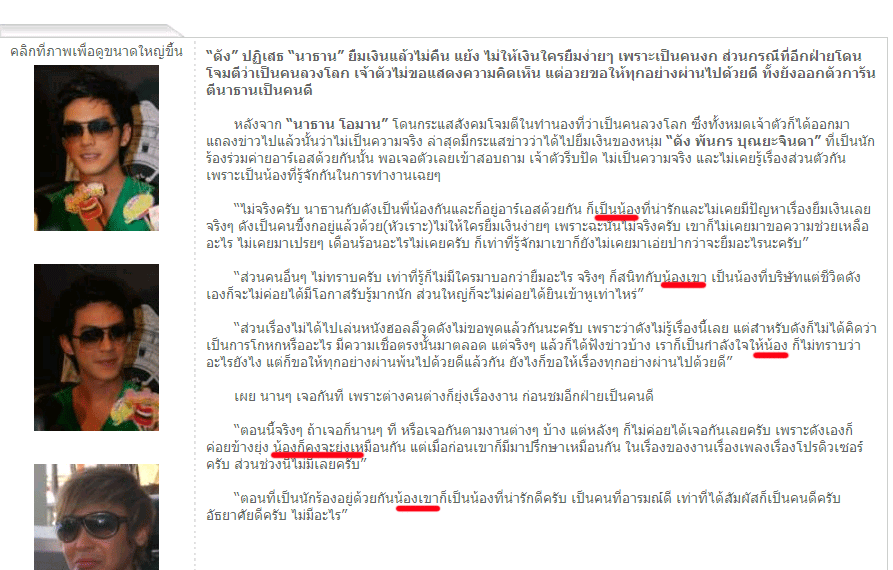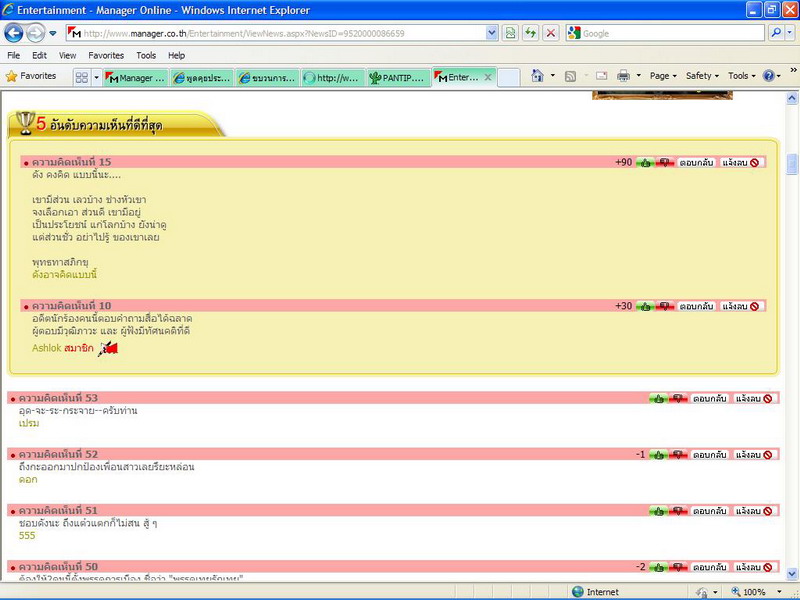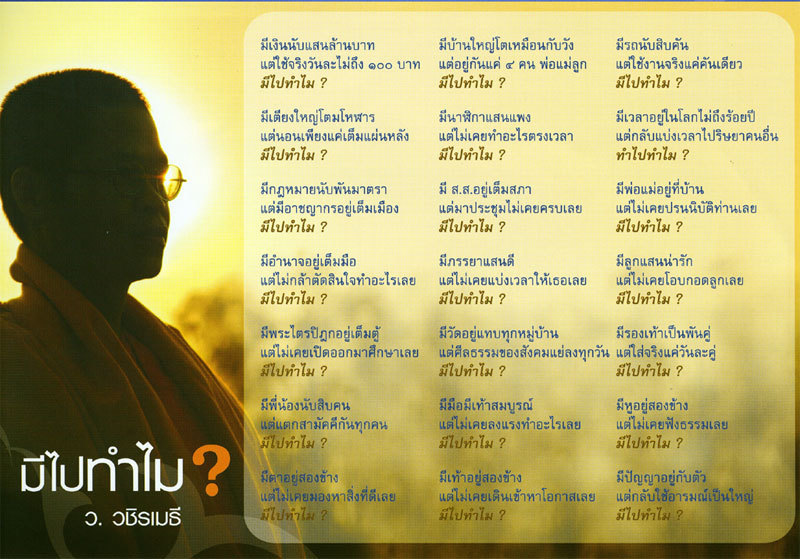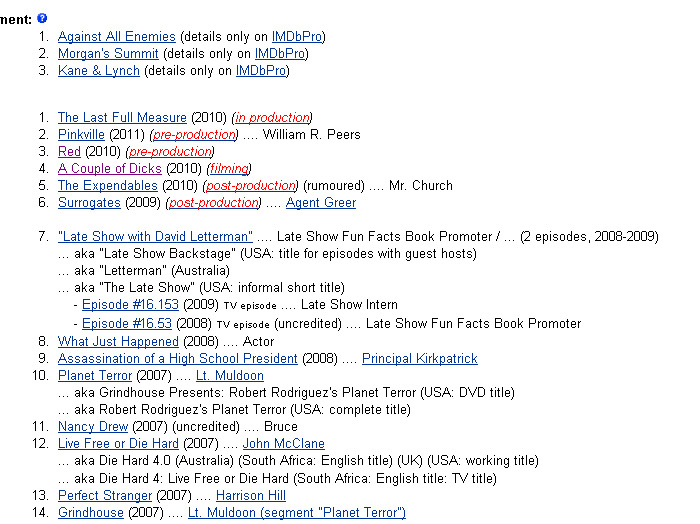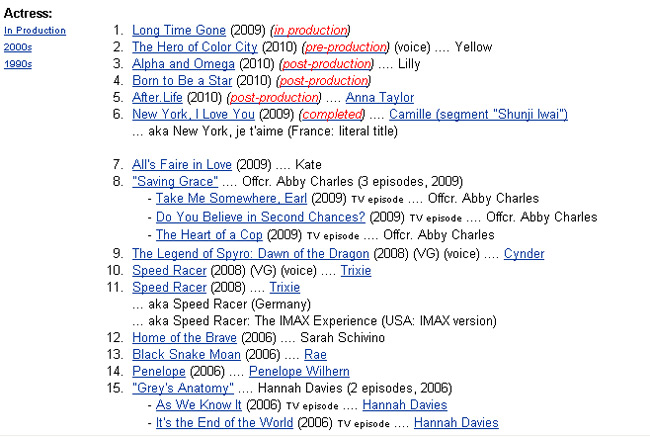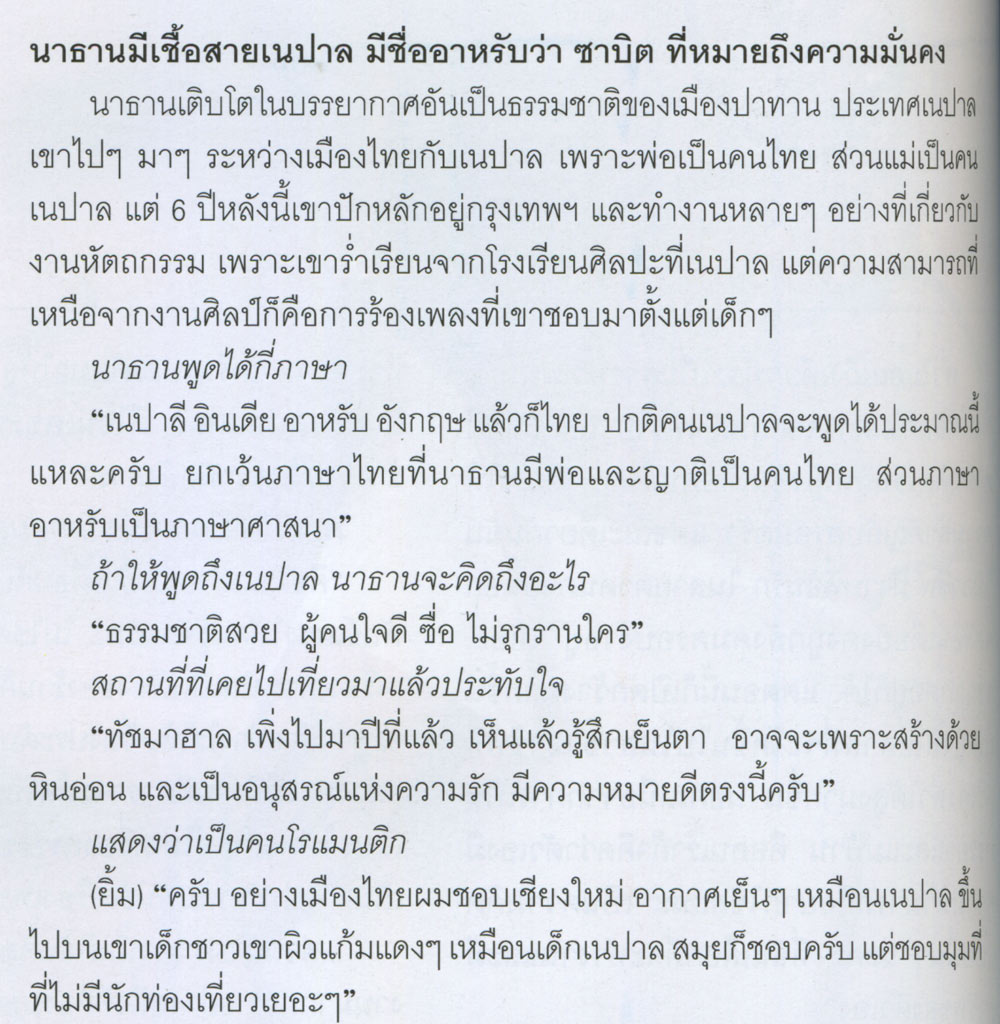 |
 ความคิดเห็นที่ 452
ความคิดเห็นที่ 452 |

วันนี้ คุณก้อง ฤทธิ์ดี เขียนเรื่องการตรวจสอบข้อมุลของสื่อกับชาวพันทิป ลง Bangkok Post ค่ะ
เขียนได้ดีมาก
Cyber sleuths do battle with TV journos
Writer: Kong Ritdee
Published: 1/08/2009 at 12:00 AM
When the chance arrives, web posters take pride in playing the savage detective.
Armed with Twitter, Facebook or merely a 24/7 online existence, their umbilical cord seemingly linked directly to the CPU, they also play the civic journalist - or sometimes witch-hunter - and they do so with the conviction that since traditional media have failed to perform their duty, they, the internet prowlers and armchair sleuths, will have to step in.
Recently we saw a web post: "The TV should check their sources first and not spread false news!"
On the same night, the TV host of a popular talk show said: "These web posters are out to destroy people!"
Newin-gate? Election fraud? No, the online investigators still haven't achieved anything of real significance. Instead, we have recently witnessed the bizarre case of the actor Nathan Oman and the suspicion that he might be lying through the media, mainly TV and newspapers. The internet detectives supposedly found out the truth and whipped up the campaign against him - and in the process exposed the faulty standards of established media channels.
It's truly an odd incident, this one about the Thai guy curiously named Nathan Oman. Last year, Nathan claimed that he was contracted to star in a Hollywood epic called The Prince of Red Shoe, which features Bruce Willis in the lead. Back then - and again earlier this year - popular news websites and TV shows reported the "success" of this Thai talent who's "gone inter". Nathan said in an interview that he would be paid a whopping $2 million, roughly 70 million baht (Nicole Kidman, supposedly, gets around $20 million per film, Will Smith more than $50 million).
He said he went to shoot the film in the deserts of the Middle East earlier this year, including in Iran; though, to begin with, American films would never get permission to shoot in Iran. Nathan had a photo to show that he was there on the set in the desert.
But soon web posters, somehow exploiting the cyber-tentacles of Google to startling effect, found that the picture had not been taken on a movie set but in a kind of Mardi Gras, where anybody could join. Then they looked at the record of The Prince of Red Shoe on a movie industry website - and found none. They tracked Bruce Willis' official website and Twitter, and found that Mr Willis hadn't left the US to shoot a film anywhere. One of them called the Thailand office of 20th Century Fox, and the caller was told that there was no record of such a film being in production.
The web community, especially at the popular and sometimes controversial Pantip.com, was inflamed - at Nathan, whom they now believed to be a liar, and at the TV media, for not exposing the truth and further, some of them perceived, for protecting the guy. And that led to one of the TV hosts saying with contempt, on air, that malicious web surfers were hell-bent on destroying the people they didn't like.
Whether Nathan has been truthful to the public or not is one story worth finding out, but another important story is the relationship between the rapid, valuable, ever-evolving yet emotionally-charged and sometimes irresponsible online media and the institutionalised, non-evolving traditional media, especially television. Mostly, the web picks up stories reported on TV and spawns new perspectives (or nonsense), thanks to countless commentators who chime in their voices; but lately, it's the TV that has picked up the threads first floated on the web and popularised it. Perhaps unintentionally, we're witnessing the struggle of a new medium to establish itself as a new means of social consciousness - after all it's the voice of the "people" - while the existing media are fiercely defending their turf.
What community websites still need to prove is that since they now have the power - at their fingertips, without having to resort to the legwork like professional journalists - they also have responsibility. Sometimes the heated emotions displayed anonymously online, while passionate, stray too close to becoming a witch-hunt. And even though their power is something to be reckoned with, it's worth noting that no online detective has really unearthed anything of genuine significance, say, about the government or its policies.
The TV, meanwhile, remains a sitting target because of its uncritical nature and its complacency as an influential organ of society. This means the final task rests with us, the audience, to develop and rely on our good judgement. Don't believe everything you see on the tube - and don't get carried away by everything you read on the web.
http://www.bangkokpost.com/opinion/opinion/21278/cyber-sleuths-do-battle-with-tv-journos
| จากคุณ |
:
Pat :o)   
|
| เขียนเมื่อ |
:
1 ส.ค. 52 11:57:12
|
|
|
|
 |



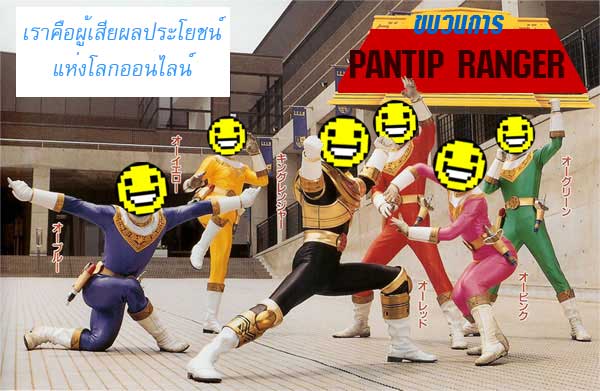



 ... เข้ามาดู
... เข้ามาดู

 ...กด F5 สลับกับจิบกาแฟ...ดีนะเจ้านายไม่อยู่...
...กด F5 สลับกับจิบกาแฟ...ดีนะเจ้านายไม่อยู่...


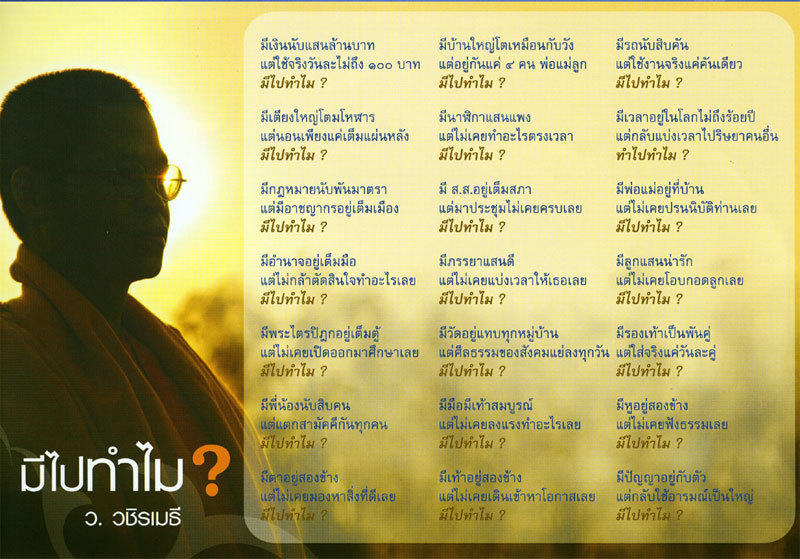



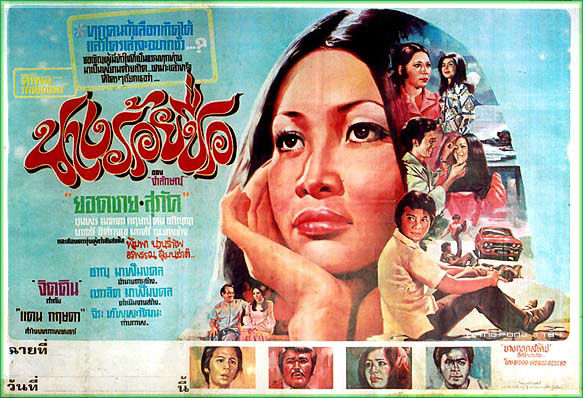





 ว่าจะไม่ตอบแล้วตามอ่านเงียบๆ
ว่าจะไม่ตอบแล้วตามอ่านเงียบๆ
 แทนก็แล้วกันนะคะ
แทนก็แล้วกันนะคะ
